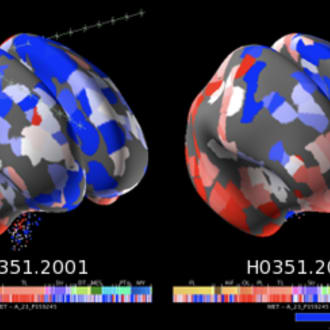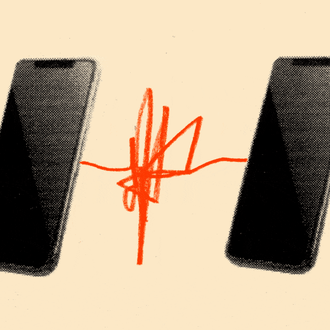Study of Microsoft employees shows how remote work puts productivity and innovation at risk
A new study finds that Microsoft's companywide shift to remote work has hurt communication and collaboration among different business groups inside the company, threatening employee productivity and…
More from GeekWire
Microsoft and Google back Typeface, an enterprise generative AI startup led by ex-Adobe CTO
A new generative AI startup with ties to Seattle just raised $65 million from Microsoft’s M12 and others to help enterprises produce content. Typeface emerged from stealth mode Monday and… Read More
Healthtech investors on the ‘holy grail’ of remote care and a new way of thinking about health…
Investor interest in healthcare technology is on the rise amid a pandemic that has put a spotlight on telemedicine, patient monitoring, and more. Global VC funding to digital health companies reached…
This excellent short film features some of the coolest biohacks in the Pacific Northwest
Biohacks — or ways to monitor, improve or even modify the human body — are incredibly compelling. It’s the stuff of sci-fi dreams. Two filmmakers from Vancouver, B.C., examine some of the most…
Allen Institute aims to map whole human brain as part of $173M NIH project
Seattle’s Allen Institute will spearhead a project to create an atlas of the cells in the human brain as part of $173 million in new funding from the U.S. National… Read More
What is Refind?
Every day Refind picks the most relevant links from around the web for you. Picking only a handful of links means focusing on what’s relevant and useful. We favor timeless pieces—links with long shelf-lives, articles that are still relevant one month, one year, or even ten years from now. These lists of the best resources on any topic are the result of years of careful curation.
How does Refind curate?
It’s a mix of human and algorithmic curation, following a number of steps:
- We monitor 10k+ sources and 1k+ thought leaders on hundreds of topics—publications, blogs, news sites, newsletters, Substack, Medium, Twitter, etc.
- In addition, our users save links from around the web using our Save buttons and our extensions.
- Our algorithm processes 100k+ new links every day and uses external signals to find the most relevant ones, focusing on timeless pieces.
- Our community of active users gets the most relevant links every day, tailored to their interests. They provide feedback via implicit and explicit signals: open, read, listen, share, mark as read, read later, «More/less like this», etc.
- Our algorithm uses these internal signals to refine the selection.
- In addition, we have expert curators who manually curate niche topics.
The result: lists of the best and most useful articles on hundreds of topics.
How does Refind detect «timeless» pieces?
We focus on pieces with long shelf-lives—not news. We determine «timelessness» via a number of metrics, for example, the consumption pattern of links over time.
How many sources does Refind monitor?
We monitor 10k+ content sources on hundreds of topics—publications, blogs, news sites, newsletters, Substack, Medium, Twitter, etc.
Can I submit a link?
Indirectly, by using Refind and saving links from outside (e.g., via our extensions).
How can I report a problem?
When you’re logged-in, you can flag any link via the «More» (...) menu. You can also report problems via email to hello@refind.com
Who uses Refind?
450k+ smart people start their day with Refind. To learn something new. To get inspired. To move forward. Our apps have a 4.9/5 rating.
Is Refind free?
Yes, it’s free!
How can I sign up?
Head over to our homepage and sign up by email or with your Twitter or Google account.








